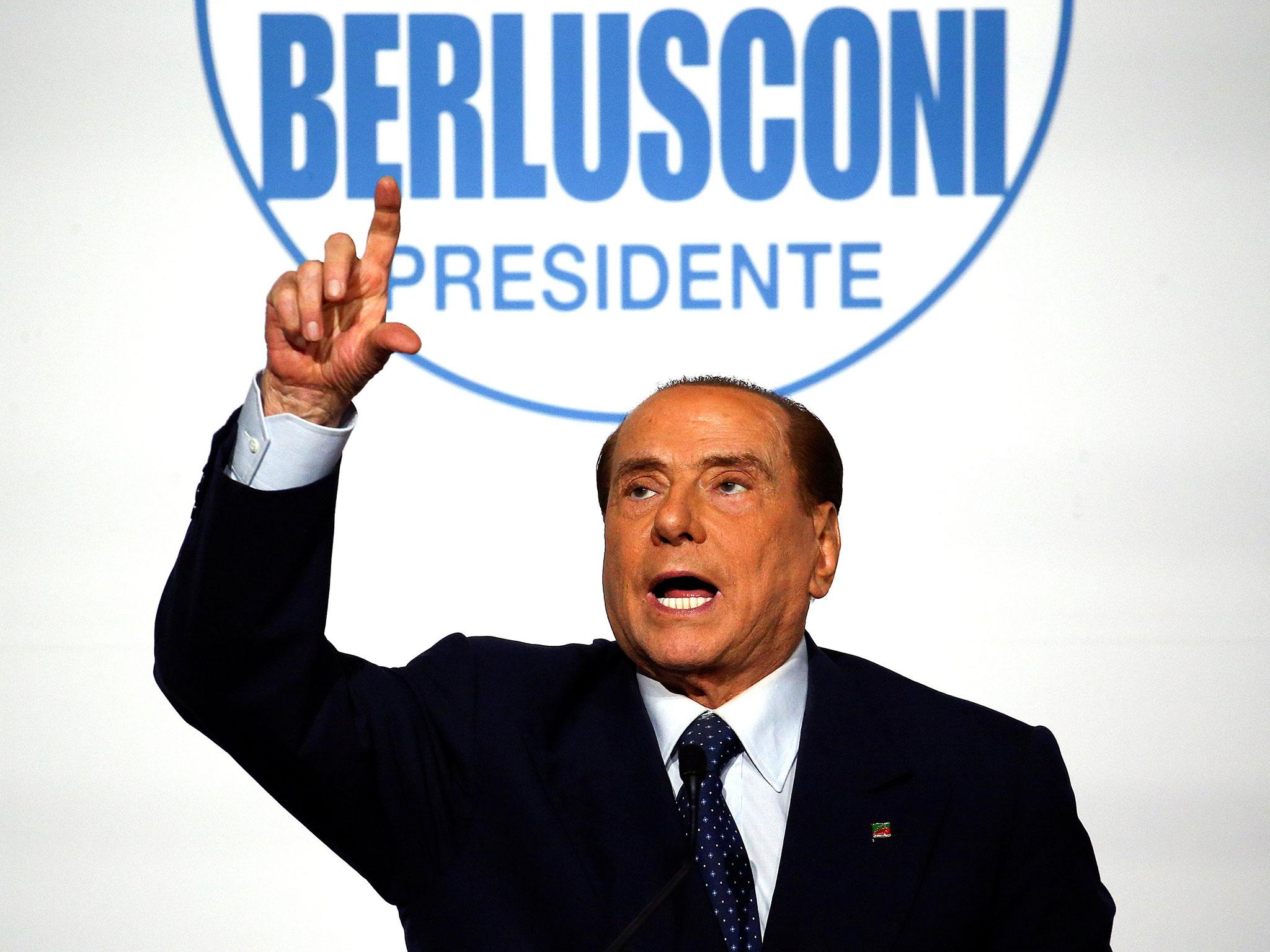Italy election 2018: If Silvio Berlusconi wins on Sunday, Russia will finally have found key ally in Europe
Moscow look set to succeed in Italy in what it failed to achieve with Marine Le Pen, Geert Wilders or the populist right in Germany

You cannot keep a bad man down, Silvio Berlusconi’s many enemies could be forgiven for thinking, as Italy’s 81-year-old comeback kid once again looks set to return to the levers of power after the election this weekend.
But it is not just a matter of more “bunga bunga” and the inherent instability of Italian politics. Indeed, people living in Brexit Britain at the moment can hardly criticise others over dysfunctional states of governance. The fact remains, however, that what happens at the polls will have significant consequences not just for the country but beyond its borders.
After Brexit, Italy will be the EU’s third largest economy and an economy beset with malaise, with youth unemployment at a staggering 37 per cent, and antipathy towards the euro and aspects of the Union. The deep divisions in Italian society, the whipping up of anger against migrants and refugees have resulted in a violent and ugly election campaign. And, hanging over the result, is the looming shadow of Vladimir Putin.
There is strong evidence of Russian interference in the US election that took Donald Trump to the White House. There is also evidence of interference in the elections in France, Germany and Holland, the European Union referendum in the UK and the confrontation over independence in Catalonia.
There has been a similar propaganda drive in Italy, led by the Kremlin-owned radio station Sputnik, whose “news specials” included claims such as: “In 2065, quota immigrants in Italy could exceed 40 per cent of total population.” But Moscow look set to succeed in Italy in what it failed to achieve with Marine Le Pen, Geert Wilders or the populist right in Germany: the aim of having allies in the heart of government, even without such efforts.
The centre-right parties were at 37 per cent in the last polls; the populist Five Star Movement 28 per cent, and the centre left 27 per cent. And the simple fact remains that the leadership of the centre right and Five Star have made no secret of their support for Russia.
Though he is the leader of the centre-right coalition, Mr Berlusconi cannot officially be prime minister due to a little matter of a fraud conviction. But he is very much the leader of Forza Italia, and announced his choice for the party’s candidate for the post, the current European Parliament president Antonio Tajani, on Thursday night. The hierarchy was clear when, following his appointment, Mr Tajani tweeted: “I thank President Berlusconi for his act of esteem towards me. I gave him, tonight, my willingness to serve Italy.”
Mr Berlusconi makes no secret of his admiration for Mr Putin. He recently gave the Russian President a birthday present of a duvet cover of the two men shaking hands. He had been secretly taped telling a prostitute during one of his “bunga bunga” parties that they will be on a “big bed”, which he referred to as “Putin’s”. Mr Berlusconi has opposed sanctions against Russia and has been accused of profiting from business dealings with Moscow. Wikileaks cables released in 2010 claimed that he was given a personal cut from an energy contract. Mr Berlusconi denies the allegation.
Matteo Salvini, the leader of the immigrant- and refugee-baiting Northern League and Mr Berlusconi’s coalition partner, had gone to Moscow to sign a cooperation agreement with Mr Putin’s United Russia party. He has denied that he, too, had benefited financially from links to the Kremlin, declaring at a rally: “I admire Putin as a man of state, a man of government who defends the interests of his people and his businesses, who defends his values and borders. I esteem him for free, not for money.”
Five Stars’s senior leaders have been vocal supporters of Mr Putin’s policies home and abroad including in Syria. Manlio Di Stefano, the party’s foreign affairs spokesman, described the shelling of Aleppo as “liberation” of the city. He appeared at a conference of United Russia to call for end to EU sanctions against Russia, attacked “aggressive Nato” and explained the “Ukraine crisis” as being the result of Western meddling in Russian affairs.
This is a change of policy for Five Stars. A decade ago Beppe Grillo, the party leader who was then a comedian turned blogger, urged people to buy copies of Putin’s Russia, a searing indictment of corruption by Anna Politkovskaya, the Russian journalist who was subsequently murdered, with accusations that it was a state-sponsored assassination.
Last year Mr Grillo’s position changed to: “If Trump wants to line up with Putin to put things back on the right path, he will have out backing. Two giants like that who can talk to each other – it’s the whole world’s dream. International politics needs strong statesmen like them ... We are in favour of revoking sanctions against Moscow.”
There is the unlikely possibility that the centre left, trailing third, may pull off a surprise win. Leader Matteo Renzi has blamed defeat in the 2016 referendum – which cost him his job as Prime Minister – on Russian meddling and propaganda and fake news. Mr Renzi has been outspoken in this campaign against manipulation of Facebook and false narratives on social media. But even he has been careful not to blame Russia directly.
The elections are likely to leave Italy divided and unsettled, raising concern in the EU and other Western capitals. European Commission President Jean-Claude Juncker was echoing the trepidation of many when he said Brussels must prepare for a possible “non-operative” government in Rome. But they may well be raising a toast or two in Moscow to celebrate a vital breakthrough.
Join our commenting forum
Join thought-provoking conversations, follow other Independent readers and see their replies
Comments
Bookmark popover
Removed from bookmarks